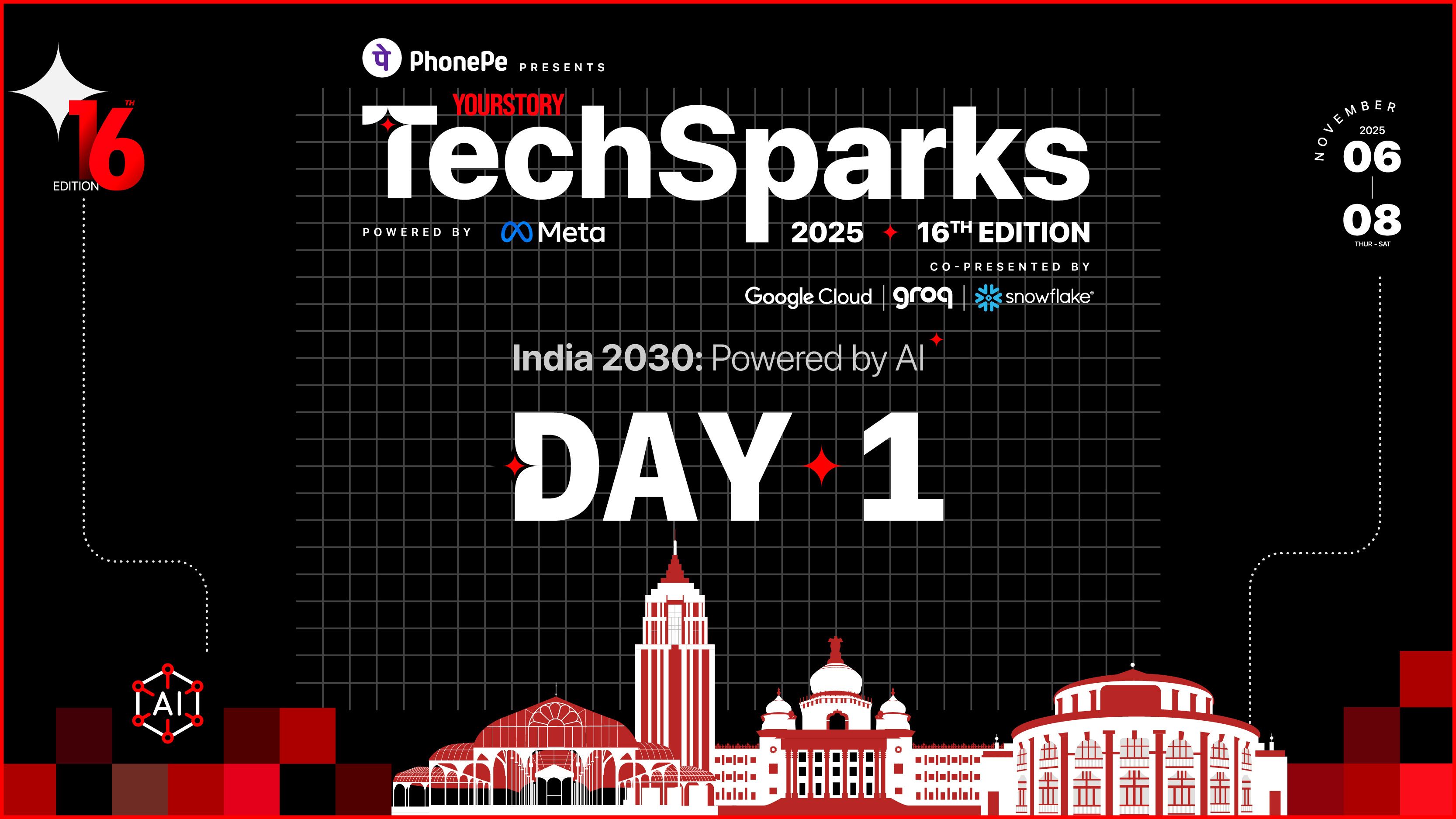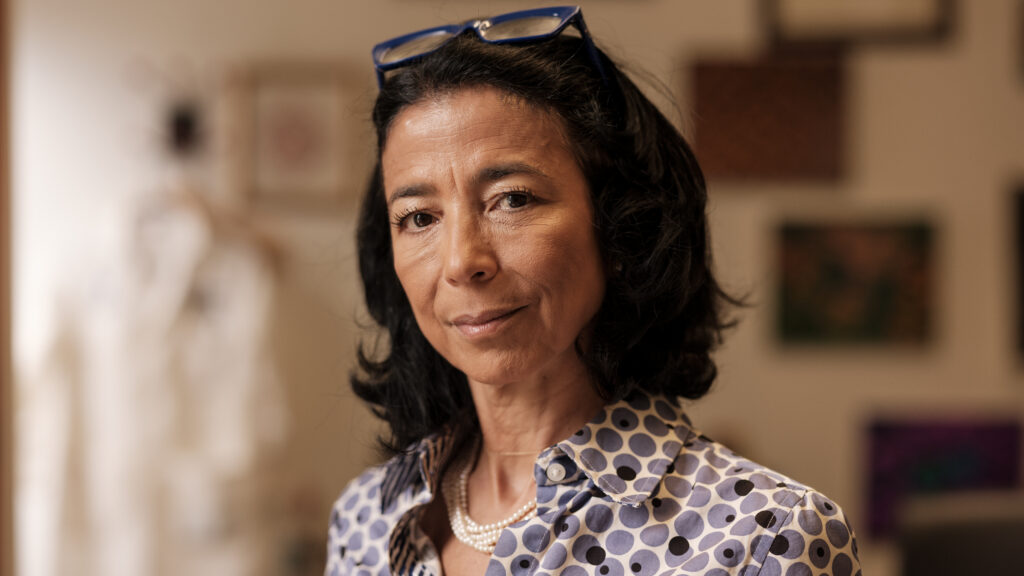Copyright yourstory

The 16th edition of TechSparks 2025 opened in Bengaluru with a powerful call to action for Bharat's entrepreneurs: trust yourself, blend authenticity and intuition, as the country enters the 'AI era'. YourStory’s flagship startup-tech summit, themed ‘India 2030: Powered by AI’, brought together founders, investors, and technologists to explore how India can shape and dominate the next era of global innovation. Setting the tone for the three-day conference, YourStory Founder and CEO Shradha Sharma urged entrepreneurs to lean into their “authentic intelligence” even as artificial intelligence advances rapidly. She urged founders to rely on their intuition, emotional depth and lived experiences, as those are things machines can't replicate. In a fireside chat, Nurix AI Founder and CEO Mukesh Bansal delved into the state of artificial intelligence and deeptech in India, cautioning that the current hype around AI far outpaces its real-world impact. While acknowledging AI’s transformative potential, he said the technology is still in its early stages. Bansal, who also founded Myntra and CureFit, noted that despite the excitement, AI adoption has not yet translated into measurable gains in enterprise growth. At the same time, he stressed that India must focus on rebuilding its deeptech ecosystem by prioritising science and research, nurturing patient capital, and creating space for failure. “Whoever controls technology controls the world,” he said, calling for sustained national investment in deeptech and quantum research. The day also featured Priyank Kharge, Minister for Electronics, IT, BT, and Rural Development and Panchayat Raj, Government of Karnataka, who admitted that while policymaking is challenging, the government must keep learning, unlearning, and relearning to avoid introducing poorly designed schemes. In a fireside chat, Kharge outlined how he engages with various stakeholders while drafting policies, crediting the success of his policies to the participatory nature of consultations. He also spelt out the state's blueprint for becoming Asia's deeptech capital, guided by an advisory committee on emerging technologies. Day 1 of TechSparks 2025 also saw the launch of the Tech30 cohort of 30 most promising startups redefining innovation across sectors, including deeptech, AI, climate tech, and healthcare. Selected from over 2,000 applications by a jury of ecosystem leaders and YourStory’s editorial team, the list spotlighted a new generation of founders building for resilience, sustainability, and scale. The launch was followed by a panel featuring Manav Garg, Co-founder and Managing Partner of Together Fund; Dushyant Mishra, Founder and CEO of Rapid Claims, and Pavan Sondur, Co-founder and CEO of CoreWorks AI, who explored how Indian founders are building globally competitive AI companies. Garg noted that Together Fund has invested $110 million across 25 AI startups in the past two years, with several already generating meaningful revenue. He emphasised that India’s edge lies in tackling hard, defensible technical problems rather than surface-level applications. Mishra outlined a framework for disruptive AI: focus on deep, domain-driven problems, rebuild technology continuously as models evolve, and move fast to earn customer trust. Sondur reinforced that scaling adoption quickly is critical. “Building is only half the game. Distribution is the real win,” he said. The conversations on Day 1 also turned toward the public markets and what defines IPO readiness for Indian startups. In a chat featuring WestBridge Capital Co-founder and MD Sandeep Singhal and IndiQube co-founders Rishi Das and Meghna Agarwal, the panel discussed the discipline, maturity, and market alignment needed to build enduring companies. Singhal said the decision to go public must be rooted in profitability and predictability, not hype or market sentiment. “Once a company reaches a stage where profits are consistent and growth is predictable, that’s the time to invite public investors,” he noted. Das and Agarwal traced their cost discipline to IndiQube’s bootstrapped beginnings, describing profitability as part of the company’s DNA rather than a late-stage goal. “Paper money never meant much; we became profitable after seven years of our journey,” Agarwal said. The event then progressed to a deep-dive on how India’s next billion users will experience the digital world, with MakeMyTrip’s Group CTO Sanjay Mohan and InMobi Co-founder and CTO Mohit Saxena leading a panel discussion on “India’s Next-Gen Tech Stack: Engineering Intelligence for a Billion Users.” Moderated by YourStory COO Sangeeta Bavi, the session underscored that India's digital future won't be built on Silicon Valley templates. It will require something more nuanced: systems that understand context, speak multiple languages, and serve users who've never typed an English sentence. The day also saw a wide-ranging discussion on the growing role of artificial intelligence in healthcare, where experts from Orange Health Labs, Inito, CureBay, and Bertelsmann India Investments explored how startups are balancing innovation with responsibility. The panellists highlighted that AI is redefining diagnostics, treatment, and patient engagement, but its promise must be matched with strong data ethics and compliance frameworks. Orange Health Labs Co-founder Dhruv Gupta spoke about addressing the “anxiety bubble” in diagnostics through faster testing and results, while Inito Co-founder and CEO Aayush Rai emphasised that healthtech innovation must remain within tested, validated, and regulated boundaries. CureBay Founder and CEO Priyadarshi Mohapatra discussed using AI to bridge the rural healthcare gap through hybrid clinics powered by teleconsultations and AI-driven screening. Adding an investor’s lens, Swati Murarka, Principal at Bertelsmann India Investments, said the firm looks for AI models built on proprietary and structured datasets that go beyond the hype. In the last fireside chat of the day, Peak XV and Surge Managing Director Rajan Anandan spotlighted India’s enduring capacity to scale and innovate, calling it a nation that “may start late but finishes strong.” He said India’s journey has never been about being first but about endurance, iteration, and scale. Citing the country’s exponential rise in space tech, from just two startups to over 200, Anandan said there was a new generation of founders unafraid of tackling complex, global problems. Looking ahead, he urged entrepreneurs to avoid chasing fleeting trends and instead focus on solving real, hard problems. Day 2 of TechSparks 2025 will continue to unpack the intersection of technology, entrepreneurship, and purpose-led innovation. The agenda features conversations with industry leaders on scaling deeptech ventures, and building for Bharat’s next billion consumers. (Edited by Kanishk Singh)



